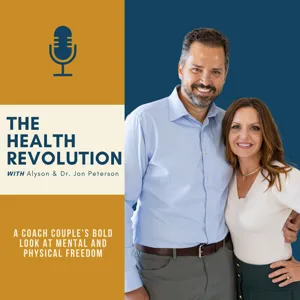Podcast Summary
Exploring emotional support animals on planes and making gym experiences less intimidating: Science Versus discusses the debate surrounding emotional support animals on planes and provides insights into making gym experiences less intimidating, offering valuable information for all.
The gym can be an intimidating place for some people, but with the right support and personalized plan, it doesn't have to be. Meanwhile, in the world of science, there's a podcast called Ologies that explores various scientific fields in a fun and engaging way. Moving on to the topic of air travel, emotional support animals have become a common sight on planes, with the number of animals allowed increasing significantly in recent years. While some people rely on these animals for emotional support, others argue that they cause disruptions and create inconvenience. In today's mini episode of Science Versus, we delve into the debate surrounding emotional support animals on planes and explore the validity of the controversy. Whether you're looking to make your gym experience less frightening or curious about the latest science stories, there's something for everyone in this episode. Remember, with the right resources and knowledge, even the most intimidating situations can be made manageable. And for those with a thirst for scientific knowledge, Ologies is a great place to start.
Animals can provide stress relief for some individuals: Animals, like cats, dogs, or turkeys, can help reduce stress through documented emotional support, lowering blood pressure, heart rate, and stress hormones.
Emotional support animals, such as cats, dogs, or even turkeys, can provide short-term stress relief for some people. However, unlike service animals like guide dogs, they don't undergo specific training for this purpose. Instead, individuals must provide documentation from a mental health professional that the animal helps manage a condition recognized in the Diagnostic and Statistical Manual of Mental Disorders (DSM). Research, including studies on petting dogs and having animals present during medical procedures, supports the stress-reducing effects of animals. For instance, reduced blood pressure and heart rate, as well as decreased stress hormones, have been observed. Overall, the evidence suggests that animals can play a role in alleviating stress for certain individuals.
Effectiveness of pets as mental health support for adults unclear: Some studies suggest pets improve mental health, others show no difference, no evidence supports bringing pets on planes for mental health benefits.
Both therapy dogs and blankets can provide comfort and reduce anxiety, according to research. However, the effectiveness of pets as mental health support for adults, especially those diagnosed with mental health conditions, is not clear-cut based on available research. While some studies suggest that having a pet can improve mental health, others indicate no significant difference. There is currently no scientific evidence to support the idea that bringing a pet on a plane can specifically help someone's mental health. People who feel they need their pet for emotional support during flights should be aware of this lack of evidence.
Effectiveness of emotional support animals during air travel questioned: Studies don't conclusively prove emotional support animals' therapeutic benefits for mental health issues during air travel. Ease of obtaining support animal status and minimal scrutiny raise concerns.
The evidence supporting the effectiveness of emotional support animals for addressing serious mental health issues during air travel is questionable. While there's no denying the comfort pets can provide, studies do not conclusively prove their therapeutic benefits. Additionally, some research suggests that an excessive attachment to pets might indicate underlying mental health issues. The ease of obtaining emotional support animal status, which only required a letter from a mental health professional until recently, has contributed to this phenomenon. Obtaining such a letter through online tests with minimal scrutiny further highlights the issue's validity. Overall, while emotional support animals can offer companionship and alleviate stress, the scientific backing for their role in managing mental health conditions during air travel remains elusive.
Cracking down on emotional support animals, consider bringing a blanket instead: Some airlines are making it harder for emotional support animals to fly, so consider bringing a blanket for comfort instead. DNA tests for identifying animals and their breeds may not always be accurate and can lead to misidentification.
Some airlines are cracking down on bringing pets on planes, making it harder for emotional support animals to fly. So, if you're looking for comfort during your flight, consider bringing a blanket instead. Meanwhile, the use of DNA tests for identifying animals and their breeds is a complex issue with many nuances. It's important to note that these tests may not always be accurate and can lead to misidentification. This episode was produced by Meryl Horne, with contributions from Wendy Zuckerman, Rose Rimmler, Michelle Dang, Caitlin Story, Blythe Tyrell, Diane Kelly, Michelle Dang, Peter Leonard, Emma Munger, Bobby Lord, Molly Crossman, doctor Karen Thodberg, Cassie Bonas, doctor Rob Young, and doctor Helen Louise Brooks. I'm Wendy Zuckerman, and that's our show for this week. Stay tuned for more fascinating insights next time.







